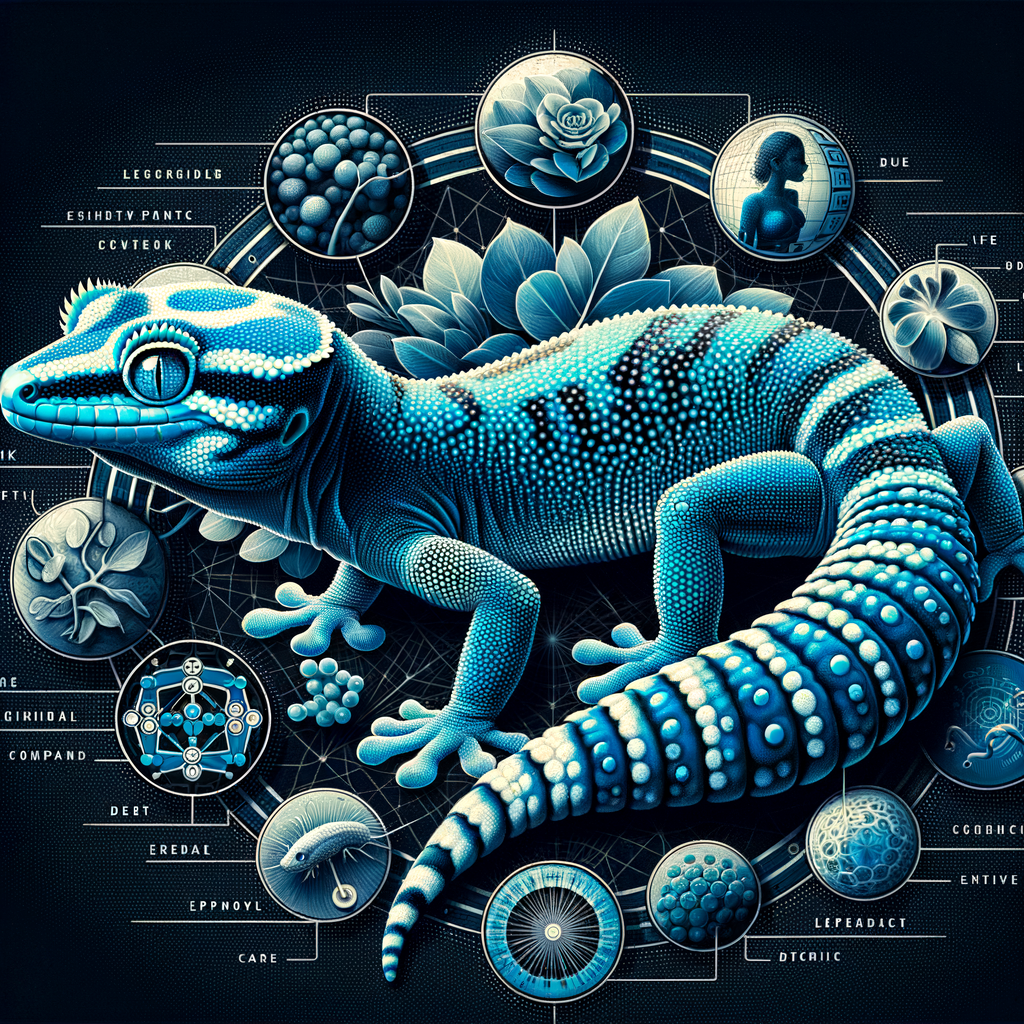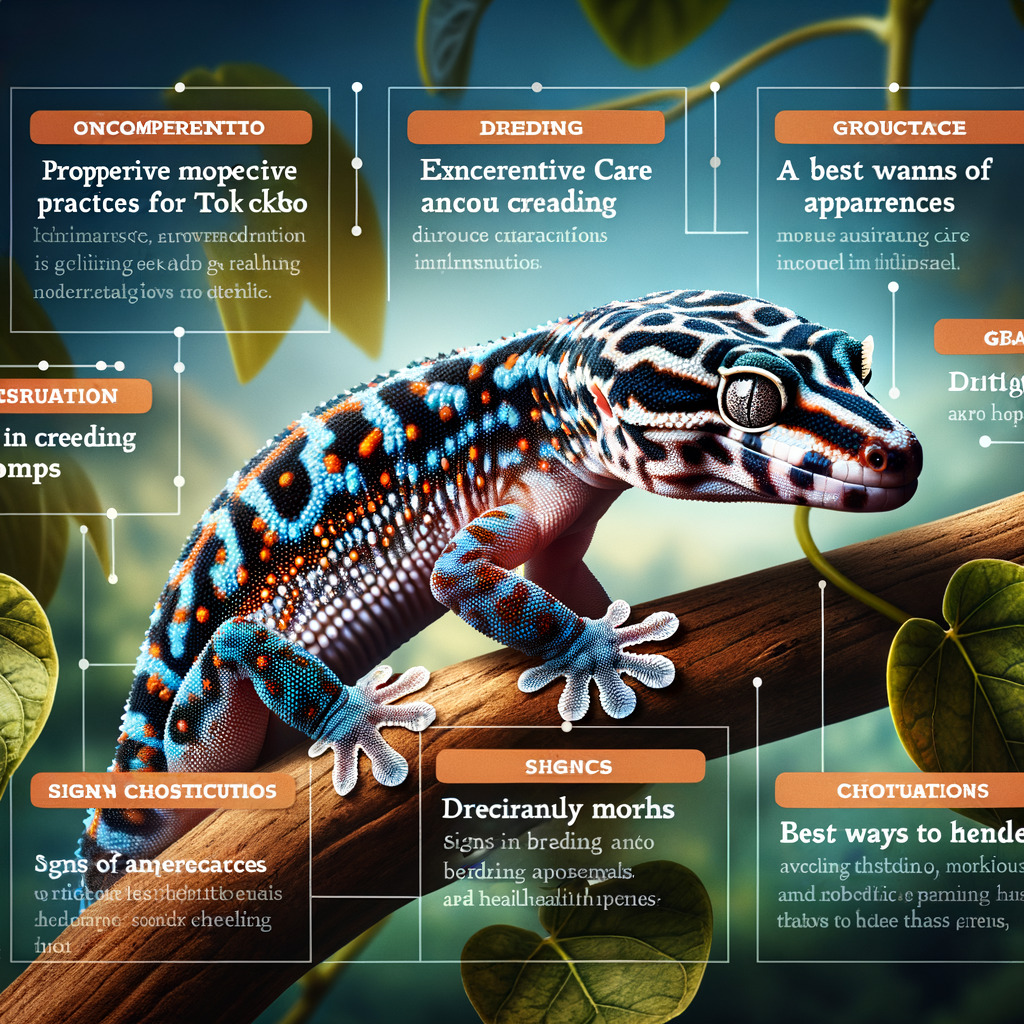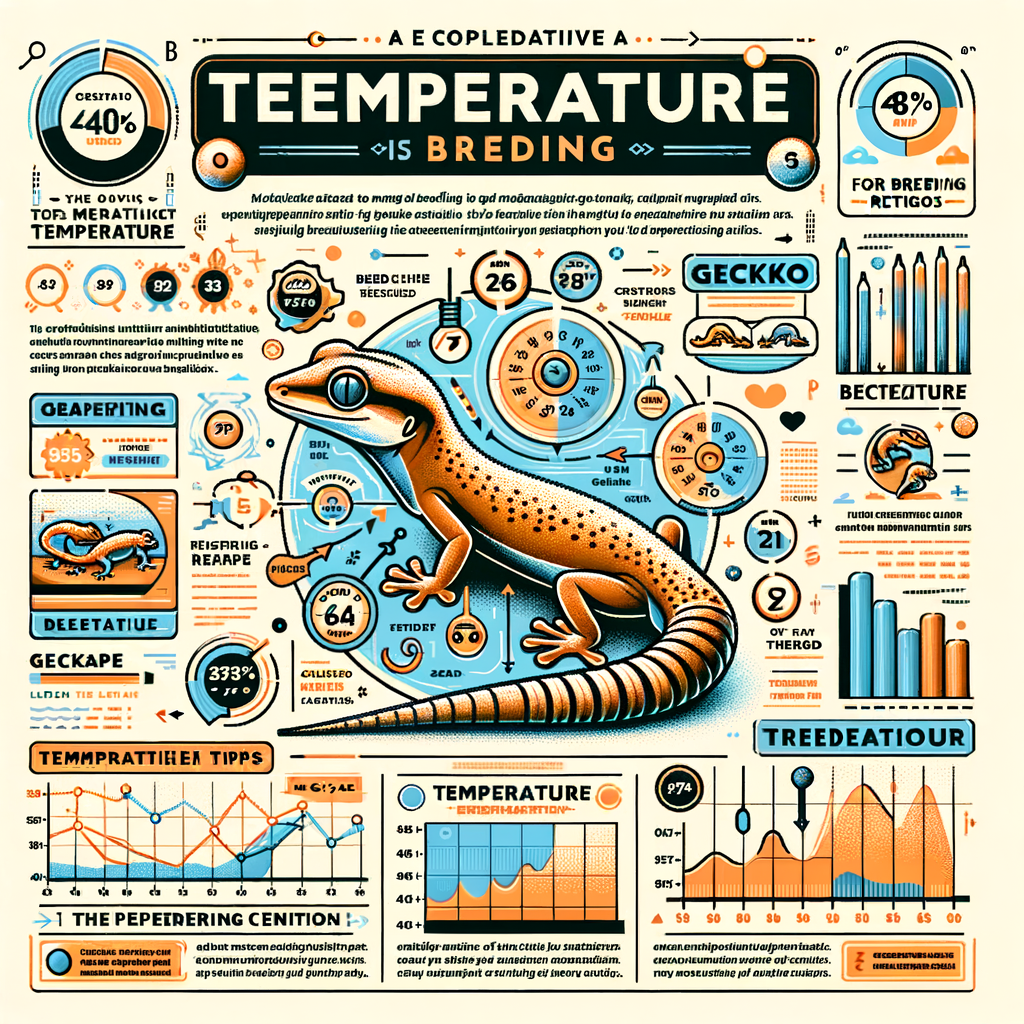Introduction to Tropical Gecko Care
Welcome to the fascinating world of tropical geckos! These vibrant, unique creatures make for wonderful pets but require specific care to thrive. In this guide, we’ll cover the basics of tropical gecko care and the importance of making a suitable habitat for your gecko.
The basics of tropical gecko care:
Geckos are ectothermic creatures, meaning they rely on their environment to regulate their body temperature. They need warmth and humidity that mimics their natural tropical habitat. Regular feeding, clean water, and a safe, comfortable place to rest are also essential.
It is important to remember that each gecko species may have specific needs, so always research before bringing a new gecko home.
Importance of a suitable habitat for your gecko:
Building a suitable habitat for your gecko is essential for its health and happiness. A well-designed habitat should include a heat source, a place to hide, climbing branches, and a substrate that maintains humidity.
Stay tuned for more detailed information on different tropical gecko species, items for setting up a gecko habitat, a tropical gecko diet, and a comprehensive gecko care guide on health and wellbeing.
Different Tropical Gecko Species
Geckos are fascinating creatures, and their diversity is one of their appeals. In tropical regions worldwide, you can find a variety of gecko species, each with unique characteristics and care needs. This section will explore some of these species and their specific care needs.
- Overview of different tropical gecko species
There are several species of geckos that thrive in tropical climates. Here are a few examples:
| Species | Description |
|---|---|
| Crested Geckos | These geckos are known for their eyelash-like crests and their ability to change color. They are native to New Caledonia, a group of islands in the South Pacific. |
| Leopard Geckos | Leopard Geckos are popular for their spotted patterns and friendly nature. They originate from the deserts of Asia and the Middle East but can adapt to the tropics when in captivity. |
| Day Geckos | Day Geckos are known for their vibrant colors and daytime activity. They are native to Madagascar and other islands in the Indian Ocean. |
- Specific care needs of different species
Each species of gecko has its unique care needs. Here are some general care guidelines for the species mentioned above:
| Species | Care Needs |
|---|---|
| Crested Geckos | Crested Geckos need humidity, a diet of fruit and insects, and vertical space for climbing. |
| Leopard Geckos | Leopard Geckos require a heat source. They are insectivores and need a diet rich in protein. |
| Day Geckos | Day Geckos need plenty of light and a fruit, nectar, and insect diet. They also require humidity and plenty of climbing space. |
Remember, these are general guidelines. Always research the specific needs of your gecko species to ensure their healthy and happy lives.
Essential Items for Gecko Habitat Setup
Here are the items you need to set up a perfect habitat.
- Choosing the Right Enclosure
The first step in setting up a gecko habitat is choosing the right enclosure. Glass terrariums are the most popular choice for geckos due to their durability and visibility.
The size of the enclosure will depend on the size and species of your gecko. As a general rule, the enclosure should be at least twice as long and wide as your gecko’s length.
- Setting Up the Substrate
The substrate is the material that lines the bottom of the enclosure. It plays a big role in maintaining humidity levels. You can use materials like coconut fiber, orchid bark, or reptile carpet. Avoid using sand as it can cause impaction if ingested.
- Providing Climbing and Hiding Spots
Geckos love to climb and hide. Providing plenty of climbing branches and hiding spots in the enclosure will keep your gecko entertained and reduce stress. You can use cork bark, driftwood, or commercial reptile hides for this purpose.
- Setting Up the Lighting and Heating
Geckos are ectothermic, meaning they rely on their surroundings to regulate their body temperature. A heat lamp or under-tank heater can create a temperature gradient. Additionally, UVB lighting is necessary for geckos to synthesize vitamin D3 and absorb calcium.
Creating the Right Gecko Habitat Conditions
The right conditions in a gecko habitat contribute to your pet’s health and happiness. One key factor to consider is temperature. Let’s delve into why temperature is so important and how you can maintain the right temperature in your gecko’s habitat.
Understanding the importance of temperature in a gecko habitat
Geckos are cold-blooded creatures, which means they cannot regulate their body temperature like humans. If the habitat is too cold, a gecko may become sluggish and lose its appetite. Conversely, if it’s too hot, the gecko may become overly active and stressed, which can lead to health issues.
How to maintain the right temperature
Maintaining the right temperature in a gecko habitat involves careful monitoring and adjustments. Here are some tips:
- Use a reliable digital thermometer to monitor the temperature. Place it in different areas of the habitat to safeguard a suitable temperature gradient.
- Provide a heat source, such as a heat lamp or under-tank heater. This will create a warm area where your gecko can bask.
- Make sure there is also a cooler area in the habitat where your gecko can retreat if it gets too hot.
- Adjust the heat source as needed based on the readings from your thermometer.
Remember, every gecko species has its own specific temperature requirements. Research and follow the guidelines for your particular gecko species.
Gecko Habitat Humidity
Humidity plays a crucial role in your gecko’s health and well-being. It’s not just about keeping the habitat damp; it’s about providing a space that mimics the natural conditions your gecko would experience in the wild.
- Understanding the importance of humidity in a gecko habitat
Humidity is vital for geckos, particularly tropical species, as it aids in their shedding process and helps to prevent dehydration. In the wild, these creatures live in environments with high humidity levels.
A lack of proper humidity can lead to health issues such as shedding problems, dehydration, and even respiratory infections.
- How to maintain the right humidity
Maintaining the right humidity involves regular misting and monitoring. Use a hygrometer to measure humidity levels to ensure it stays within the ideal range, which is between 70% and 80% for most geckos.
Misting with water once or twice daily can help maintain these levels. However, be careful not to over-mist, as this can lead to excessive humidity and potential mold growth.
| Gecko Species | Ideal Humidity Level |
|---|---|
| Leopard Gecko | 20% – 40% |
| Crested Gecko | 70% – 80% |
| Gargoyle Gecko | 50% – 70% |
Tropical Gecko Diet
When it comes to caring for your tropical gecko, understanding its diet is crucial. This section will delve into the dietary needs of a tropical gecko, the feeding schedule and portion sizes, and the importance of supplements. Let’s get started!
Understanding the Dietary Needs of a Tropical Gecko
Tropical geckos are primarily insectivores, meaning they thrive on a diet of small insects. This can include crickets, mealworms, and roaches. The insects should be gut-loaded, which means they’ve been fed nutritious foods before being given to your gecko.
Some species of tropical geckos, like the crested gecko, can also eat fruit. A diet of 70% insects and 30% fruit is generally recommended for these geckos.
Feeding Schedule and Portion Sizes
Young geckos should be fed daily, while adult geckos can be fed every other day. The portion size will depend on the size of your gecko. A good rule of thumb is to feed your gecko insects that are no larger than the space between its eyes.
As for fruit, a small dollop the size of your gecko’s head every few days is sufficient. Remove uneaten food after 24 hours to prevent it from spoiling.
Supplements and Their Importance
Supplements play a vital role in a tropical gecko’s diet. They help your gecko get all the vitamins and minerals it needs. Calcium and vitamin D3 supplements are particularly necessary for bone health.
Most gecko owners dust the insects with supplement powder before feeding them to their pets. Follow the instructions on the supplement packaging to make sure you’re using the correct amount.
Gecko Care Guide: Health and Wellbeing
Like any other pet, geckos require a certain level of care to maintain their health and well-being. This section will discuss common health issues in geckos and the importance of regular vet check-ups.
Common health issues in geckos and how to prevent them
Geckos can suffer from various health issues, some of which are common and others quite rare. Here are some of the most common health problems that geckos face:
- Metabolic Bone Disease (MBD): This is a common issue in geckos caused by a lack of calcium in their diet. Symptoms include weak and brittle bones, difficulty moving, and a bent or twisted spine. To prevent this, ensure your gecko has a balanced diet rich in calcium.
- Respiratory Infections: These are usually caused by poor living conditions, such as low temperatures and high humidity. Symptoms include difficulty breathing, loss of appetite, and lethargy. To prevent this, maintain the right temperature and humidity levels in your gecko’s habitat.
- Parasites: Geckos can get parasites from their food or environment. Symptoms include weight loss, lack of appetite, and abnormal feces. Keep your gecko’s habitat clean and feed them a healthy diet to prevent this.
Importance of regular vet check-ups
Regular vet check-ups are crucial for your gecko’s health. A vet can detect early signs of illness that you might miss and provide treatment before the condition worsens.
They can also advise on diet, habitat conditions, and general care to keep your gecko healthy. It’s recommended that you have your gecko checked at least once a year or more frequently if it shows signs of illness.
Conclusion: Creating the Perfect Paradise for Your Gecko
As you embark on your journey of gecko care, here are some final words of advice:
- Patience is Key: Geckos may take time to adjust to their new environment. Be patient and give them the space they need.
- Regular Check-ups: Regular vet visits can help detect any potential health issues early.
- Research: Keep learning about your gecko’s needs. The more you know, the better you can care for your pet.
- Enjoy the Journey: Caring for a gecko can be a rewarding experience. Enjoy the process and the unique bond you’ll form with your pet.
Providing the perfect paradise for your gecko involves careful attention to their habitat, diet, and overall well-being. With patience, dedication, and a love for these fascinating creatures, you can create a sanctuary in which your gecko will thrive. Happy gecko caring!





